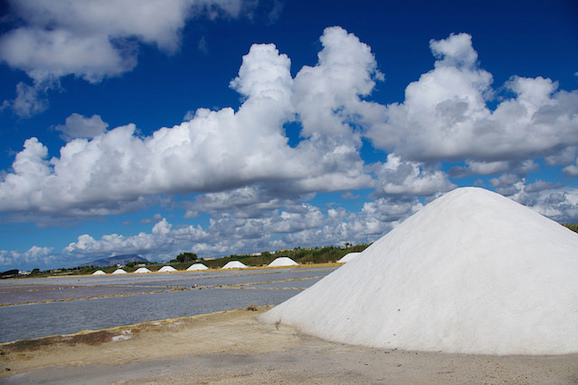
AsianScientist (Sep. 2, 2014) – Scientists have a new way to confront the illegal use of waste cooking oil in China. A paper published in the Chinese Science Bulletin outlines the potential use of laser-induced breakdown spectroscopy (LIBS) to rapidly distinguish between “gutter oil” and safe, edible oil.
“Gutter oil” is made from leftover restaurant oil, and circulates widely in China. Investigations of this toxic concoction have detected samples including harmful substances like bacteria, heavy metals, and even strong carcinogens like flavacol.
Long-term consumption of gutter oil can lead to liver ailments and cancer, as well as to developmental disabilities in newborns and children. Yet, due to a lucrative trade in this toxic substance, producing and selling gutter oil persists despite the threat of severe punishment by the Chinese government.
This situation has grown in severity because of a longstanding difficulty in differentiating gutter oil from legitimate oil. Bleach is used to transform gutter oil’s dark color into a more natural one and alkali additives are used to neutralize the abnormal pH caused by containing high rates of animal fats. Reports in the Chinese press have indicated that one in ten visits to a restaurant is likely to lead to the unwitting consumption of gutter oil.
Laser-induced breakdown spectroscopy (LIBS) can be used in the quantitative and qualitative analysis of solids, liquids and gases. In LIBS, a high-energy focused laser pulse is utilized as a vaporization and excitation source to create a plasma in front of a target surface. The laser-induced plasma generates a spectrum of ionic and atomic characteristic emission lines, which are used to identify the composition of each element in the sample.
LIBS is regarded as a promising tool for chemical analysis due to its unique features, such as requiring little or no sample preparation, remote sensing, and fast analysis of multiple elements.
In the present study, researchers led by Professor Ding Hongbin at the Dalian University of Technology have used LIBS techniques to detect gutter oil. They used LIBS to obtain the spectral features of oil samples, developing an analysis software to automatically collect useful line signals from a single-shot LIBS spectrum.
This approach achieved an identification accuracy of 94.2 percent and 98.1 percent, depending on whether a principal component analysis or artificial neural network model was used. The authors said that their method provides a new approach to detecting gutter oil efficiently and quickly.
The article can be found at: Wu et al. (2014) Preliminary Study of Identifying Trench Oil Based On Laser-Induced Breakdown Spectroscopy.
———
Source: Science China Press; Photo: Ralph Aichinger/Flickr/CC.
Disclaimer: This article does not necessarily reflect the views of AsianScientist or its staff.












